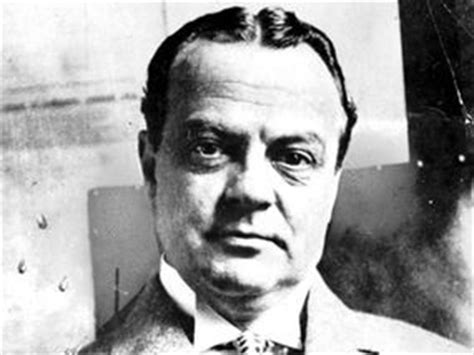History, it is said in a quote often misattributed to Mark Twain, does not repeat itself, but it does occasionally rhyme. This quote came to mind when watching the latest cash for honours scandal play out. This scandal involves many of the similar issues that were apparent in the Maundy Gregory scandal of the early 20th century. You have the exchange of cash for honours, powerful and priapic politicians, alleged connections with the Royal Family and the involvement of left wing political figures blowing the lid off of the scandal. I will at a later point deal with each of these interesting similarities in turn. But first a short summary of the Maundy Gregory case as it’s something that is not known about by many and only political anoraks seem to be really familiar with it despite it being big news back in the day. The summary about Maundy Gregory’s sleazy activities comes from the Just Criminals website.
Just Criminals said of Gregory:
Liberal Prime Minister David Lloyd George sold honours to finance his political aims and to ensure that the House of Lords was packed with his supporters. Arthur John Peter Michael Maundy Gregory, the son of a Southampton clergyman, saw what was happening and offered his services.
Lloyd George hired Gregory to raise funds for his putative United Constitutional Party. Gregory set up an office near Downing Street and installed a commissionaire in a uniform very similar to those of government messengers. Gregory used bribery, flattery and gifts to learn who was in line for an honour and then wrote inviting them to dinner.
For a sum, he told them, he could ensure that they received an appropriate honour — he charged £50,000 for a peerage, £35,000 for a baronetcy and £10,000 for a knighthood. As news spread, various businessmen seeking honours approached him. Not all of them were honest — Richard Williamson received a CBE for “untiring work in connection with various charities”. He was a Glasgow bookmaker with a criminal record. There were many other instances. Gregory earned about £1.2 million for the Liberal and later Tory parties — about £32 million at present values. He also earned about £3 million annually, enabling him to buy the Ambassador Club in 1927 and his own newspaper, which he used to spew anti-Bolshevik and anti-Semitic views. He also acquired Burke’s Landed Gentry in 1929. When Lloyd George’s government lost power to the Conservatives they passed the Honours (Prevention of Abuses) Act on 7 August 1925, making the sale of honours illegal.
The article continued to say that when thwarted in his scheme to sell British honours Gregory went to to sell Papal Honours to those who wanted them. Gregory’s criminal activities ceased when someone that Gregory had approached to get them to pay for a corrupt honour, went to the police instead of paying Gregory any money. Another person who suspected Gregory was the left wing activist Victor Grayson who was gathering evidence against Gregory when Grayson mysteriously disappeared in 1920 Gregory was taken to court in the 1930’s and pleaded guilty to contravening the Honours (Prevention of Abuses) Act. Gregory remains to this day so far the only person convicted under this Act.
There’s much more out there about Gregory’s activities including allegations that he worked for Britain’s Security Service MI5 and the Secret Intelligence Service along with his alleged involvement in other scandals such as the forged Zioviev letter. This letter is the one that helped to bring down Ramsay Macdonald’s Labour government by causing a collapse in the Liberal Party vote thereby causing a Conservative landslide result. After the honours trial Gregory fled to France where he was interned by the Nazis when France fell. Gregory died in an internment camp at Drancy in France of heart failure.
It is important to point out here that although there are similarities between the Gregory case and today’s latest honours for cash scandals, today’s scandals are not a carbon copy of them. There are a number of similarities between the two cases but the cases are entirely different because the political culture has changed.
Let’s look at some of the similarities between the Gregory case and today’s scandals. Whilst there is no suggestion at this stage that the Prime Minister Boris Johnson is directly involved in the selling of honours, as personalities, Johnson and Lloyd George do share some traits. Both Lloyd George and Johnson are notoriously priapic men who seem to have found it impossible to keep their junk in the trunk so to speak and have been linked to numerous women both whilst they were married and when they were single. Both also lusted after power as well as the opposite sex and occupied high offices of state before becoming Prime Minister. Both Johnson and Lloyd George have or had forceful personalities and sometimes their politics was accompanied by allegations that they were less than truthful on some matters than maybe they should have been.
There are similarities as well with connections with and mentions of the Royal Family. In the case of Gregory it was a close friendship with the then Duke of York, later King George VI whilst in today’s scandal there have been allegations that Prince Charles’s valet Michael Fawcett and the granting of an honour to a member of the Saudi Royal Family. On this matter The Week magazine said in September of this year:
Prince Charles’s closest aide quit his job after allegations that he offered to secure an honour for a Saudi tycoon who donated more than a million pounds to royal charities.
Michael Fawcett has “stepped down temporarily” as chief executive of the Prince’s Foundation after an investigation by The Sunday Times found that he “offered to help to secure a knighthood and British citizenship” for Saudi businessman Mahfouz Marei Mubarak bin Mahfouz, who gave £1.5m to Prince Charles’s charities.
Fawcett’s resignation is likely to be a huge blow to the future king, who views him as a key aide. Charles is reported to have once remarked: “I can manage without just about anyone, except for Michael”.
I must admit that even if the Prince of Wales is entirely blameless in this matter, it is still not a good look and will further encourage those who question the Prince’s judgement both in the personal and political fields. I certainly look at this putative honours scandal and the alleged involvement of the Prince’s valet, who is a man very closely bonded to the Prince and consider it more evidence that Prince Charles is not just a man who would be King but a man who should not be King.
There are also similarities in how both the Gregory case and the current scandals have at their heart the exchange of honours for political favours. In Lloyd George’s case is was to get additional support in the House of Lords whilst in the current scandal it is related to gaining money for the Conservative Party coffers.
There are further similarities between the honours scandal of yesterday and that of today. Both these cases were eventually reported to the Metropolitan Police. In the Gregory case, someone who Gregory had tried to solicit money off for an honour refused to become involved and went to the police. Today’s police involvement comes following contact with the Met by an SNP MP who has asked the police to investigate. With regards the Met’s involvement in today’s scandal, Sky News said:
The Metropolitan Police has confirmed it has received a letter from the SNP asking it to investigate cash for honours allegations against the Conservatives.
A spokesman for the force said it is currently “considering the contents of the correspondence” but an investigation or formal assessment into the allegations has not started.
SNP MP Pete Wishart revealed on Monday he had written to the Met after a report in The Sunday Times said 15 of the last 16 Conservative Party treasurers have been offered a seat in the House of Lords after donating more than £3m to the party.
An ex-party chairman was quoted by the newspaper as saying: “The truth is the entire political establishment knows this happens and they do nothing about it… the most telling line is, once you pay your £3m, you get your peerage.”
The Conservatives have denied there is any link between the donations and nominations to sit in the upper chamber.
The Sky article then goes on to say that Mr Wishart is not directly accusing anyone of corrupt practises but merely wants the matter to be looked into. Whether the Met will find anything or even if they do will they sweep it under the carpet because it’s such a political hot potato remains to be seen. However bringing this matter to the attention of the Met as Mr Wishart has done does up the ante somewhat in this scandal.
The final similarity between the Gregory case and today is the involvement of figures on the Left. Today that figure is Mr Wishart whilst in the past the leftist who had suspicions about the Gregory case was Victor Grayson. The fate of Victor Grayson, who was a supporter of Lenin remains unknown. Some say that Gregory, who was said to be spying on him for MI5, had him murdered for fear that he would reveal details about the honours selling. However others say that Grayson, who was allegedly bisexual at a time when this sexuality was illegal, disappeared of his own free will. It’s possible that he disappeared because of a sex scandal or because he was bribed to keep quiet about the honours scandal. There are claims that Grayson lived on into the 1950’s under an assumed and false identity but this cannot be completely proved.
It remains to be seen whether the current cash for honours scandal becomes as big and as politically devastating as the Maundy Gregory one was. The scandal and the police investigation into it are at their early stages. But, if it does blow up into something very very big, then unlike the Gregory scandal, where a lot of people with the exception of Lloyd George managed to avoid being tainted with the scandal, the impact of today’s case could be much wider and deeper. The then Duke of York was able to avoid being too badly hurt reputation wise from his friendship with Gregory but the involvement of the Prince of Wales’s office and staff in the granting of honours to Saudis might cause a lot of public opprobrium to come the way of Prince Charles. The mud from this scandal might even stick to Boris Johnson firmly enough that the Conservative Party might see him as as potential vote loser rather than the vote winner that he has been in the past. This is a scandal that could run and run.






The really strange thing about the present crop of scandals is that those of us who take a keen interest in politics have known for years these things have been going on. Every now and then for some reason it all boils over and the media and possibility the public get worked up about it but the kind of things being discussed as scandal are the constant background noise of British politics.